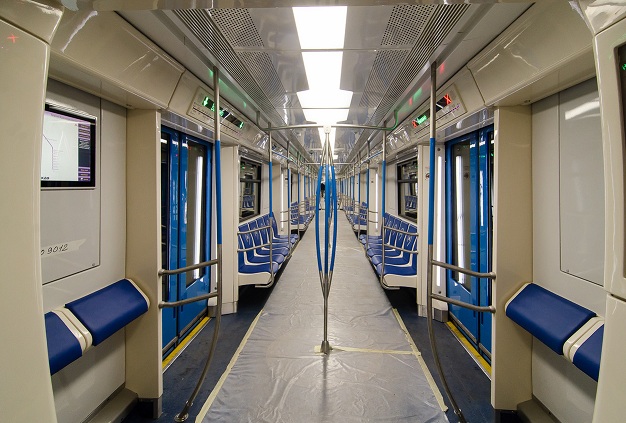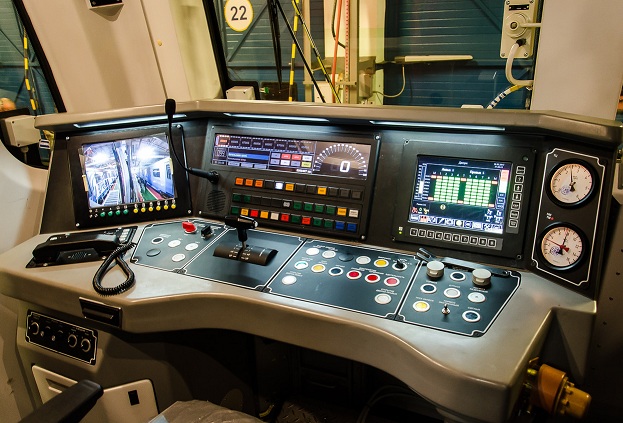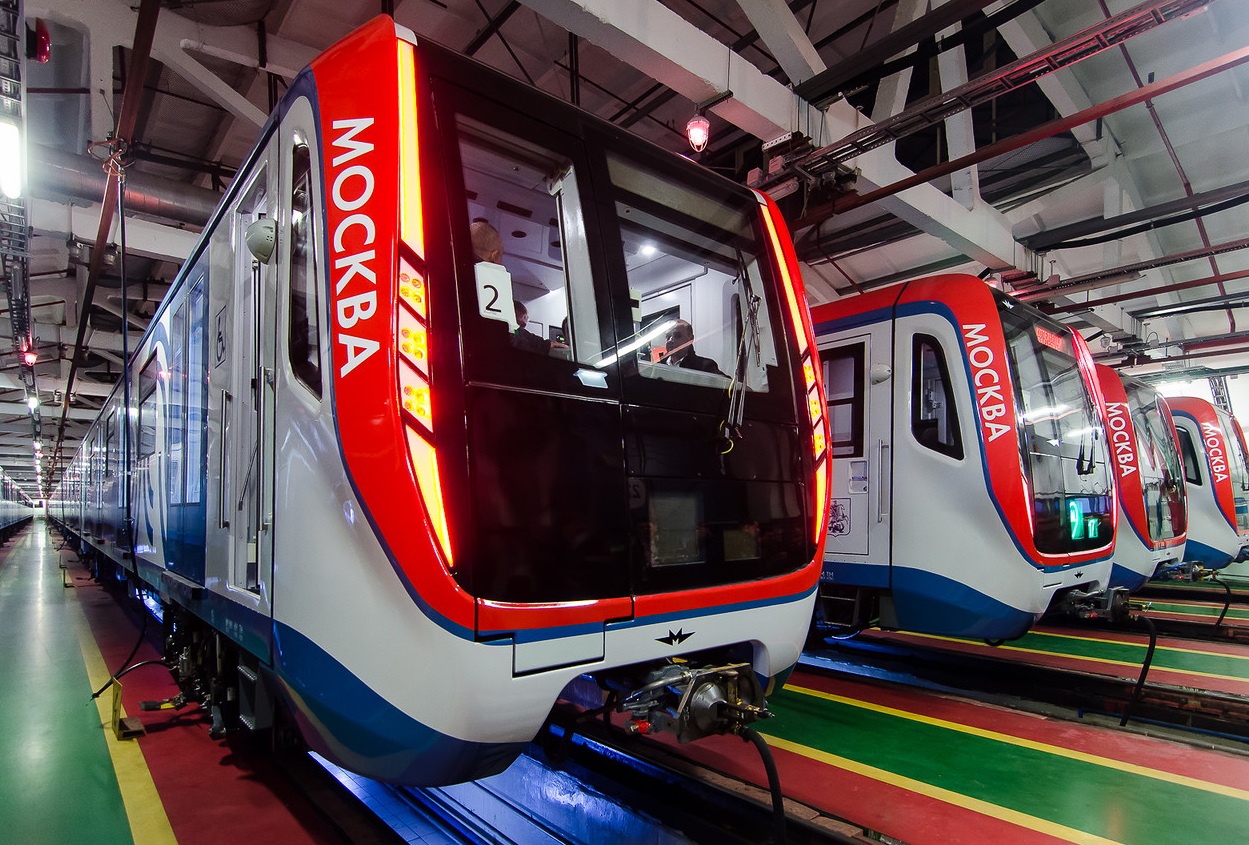The importance of top-notch, modern transportation infrastructure continues to be realized in Azerbaijan, as the metro system in the capital city, Baku, is poised to get a bit of an upgrade.
The Russian transportation company Metrovagonmash Company is being contracted to build two premium five-car trains for the Baku Metro later this year, according to an agreement signed between Metrovagonmash OJSC and CJSC Baku Metro in Moscow last Friday.
“We will bring the new trains and put into operation this year,” Baku Metro Spokesperson Nasimi Pashayev told Caspian News.
“The agreement was signed on February 16 during our representatives’ visit to Russia and will be valid for 2018. So, we’re planning to get the new trains in our railway depot during this year,” Pashayev added.
The new 81-765/766 model fourth-generation trains, more commonly known as ‘Moscow’, have been produced for the Moscow Metro since 2017. The cars have an estimated service life of 31 years, which make them a long-term investment for municipalities purchasing them. The premium five-car trains consist of two locomotives for back-and-forth steering and three intermediate wagons.
Passenger comfort and safety may be the biggest advantage of the new Russian cars, however.
All of the trains are equipped with wider doorways compared to previous models, as well as a new light warning system for any opening and closing doors as passengers disembark and on-board. New low-tension wheels decrease noise through noise-absorber devices during steering and braking, making long waits at metro terminals more pleasant for passengers.

Additionally, novel asynchronous traction drive units are able to provide reliable, eco-friendly noise and thermal insulation. Passengers will be allowed to bring on board bicycles thanks to a special section designed for the new model of trains.
“New cars are superior to trains that we purchased [from Metrovagonmash] in 2015. Passenger comfort is a priority for Baku Metro and new model trains have advanced air conditioning and microclimate control systems,” Pashayev told Caspian News.
“We buy new trains due to two main reasons: the breakdown of outdated vehicles and growing demand for metro service. New trains will both fill the gap left after outdated cars are put out of service and help to provide on-time and quality service amidst the growing number of passengers.”

In 2015, Metrovagonmash and the leading French transport engineering company Alstom dispatched three 81-760.B/761.B/763 model five-car trains to the Baku Metro, which currently has 280 cars that were produced by Metrovagonmash. The Russian manufacturer has been a reliable supplier for Azerbaijan since 1967, when the Baku Metro opened up during Azerbaijan’s time as part of the USSR.
The Baku Metro rails today measures 36 km (over22 mi) and wind through 26 stations throughout the city. The lines cover all the main boroughs in the city, including the settlements on the outskirts of the city and the historic Old City district, as well as the industrial areas. Daily passenger traffic is roughly 600,000 people, according to data provided by the Azerbaijani government.
Being the most popular means of mass transportation in the city, expectations are that the total number of stations will reach 76 as five different lines will cover a total of 119 km (74 mi), by 2030. The state-sponsored Conceptual Development Schedule of Baku Metro program calls for the edge-to-edge connection of Baku’s north and south, and east and west.
Three leading transport engineering companies from France - Alstom Transport SA, Bouygues Travaux Publics LLC, and THALES SA – are helping reconstruct and renovate Baku Metro stations, modernize its material-technical base, and improve its service capacity as well as bring the fleet in line with international standards.







 The Islamic holy month of fasting, Ramadan comes to an end this week with the celebration of a joyous festival called Eid (meaning “festival” in Ar...
The Islamic holy month of fasting, Ramadan comes to an end this week with the celebration of a joyous festival called Eid (meaning “festival” in Ar...
 Iran's senior military leaders described the drone and missile attack on Israel on April 14 night as “successful".
Iran's senior military leaders described the drone and missile attack on Israel on April 14 night as “successful".
 Iranian President Ebrahim Raisi warned Israel that it would face a "real and extensive" response if it makes any "mistake" following Tehran’s missi...
Iranian President Ebrahim Raisi warned Israel that it would face a "real and extensive" response if it makes any "mistake" following Tehran’s missi...



